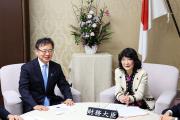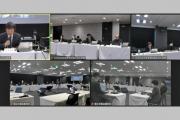ACADEMIA
Emergency Approval Push for Shionogi’s COVID Pill Not Profit-Driven: Academic Societies
Two Japanese academic societies issued a proposal earlier this month to prod emergency approval of Shionogi’s COVID-19 pill ensitrelvir. On September 8, they posted a letter to clarify the proposal, saying that it was not intended to benefit the manufacturer…
To read the full story
Related Article
- Academic Societies Urge Japan Govt to Approve Shionogi’s COVID-19 Pill
September 5, 2022
ACADEMIA
- Japan’s Maternal RSV Vaccine Uptake at 11.6%, Survey Finds
January 15, 2026
- Early CGP Testing Cuts Mortality Risk by 41%, Research Shows
December 1, 2025
- 5-Year Cancer Survival Shows Wide Gap by Tumor Types, Gains Seen in Lymphoma: NCC
November 20, 2025
- Japan Sleep Society to Revise Insomnia Guidelines to Reflect Orexin Antagonists
October 8, 2025
- Japan’s Sakaguchi Wins 2025 Nobel Prize in Medicine
October 7, 2025
The Japanese healthcare sector is experiencing rapid growth, demanding a highly skilled and diverse workforce. However, finding and attracting the best talent in this competitive market presents significant challenges.Enter AI. With the rise of AI-powered tools, healthcare organizations can revolutionize…











